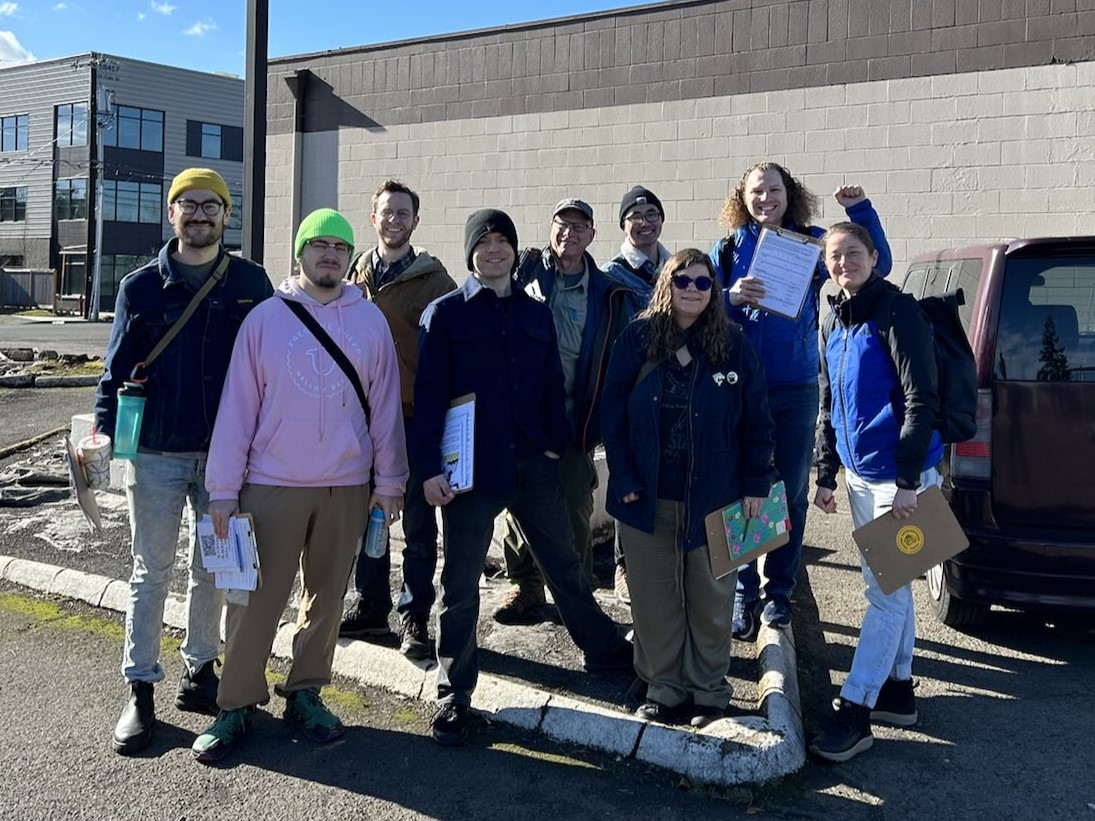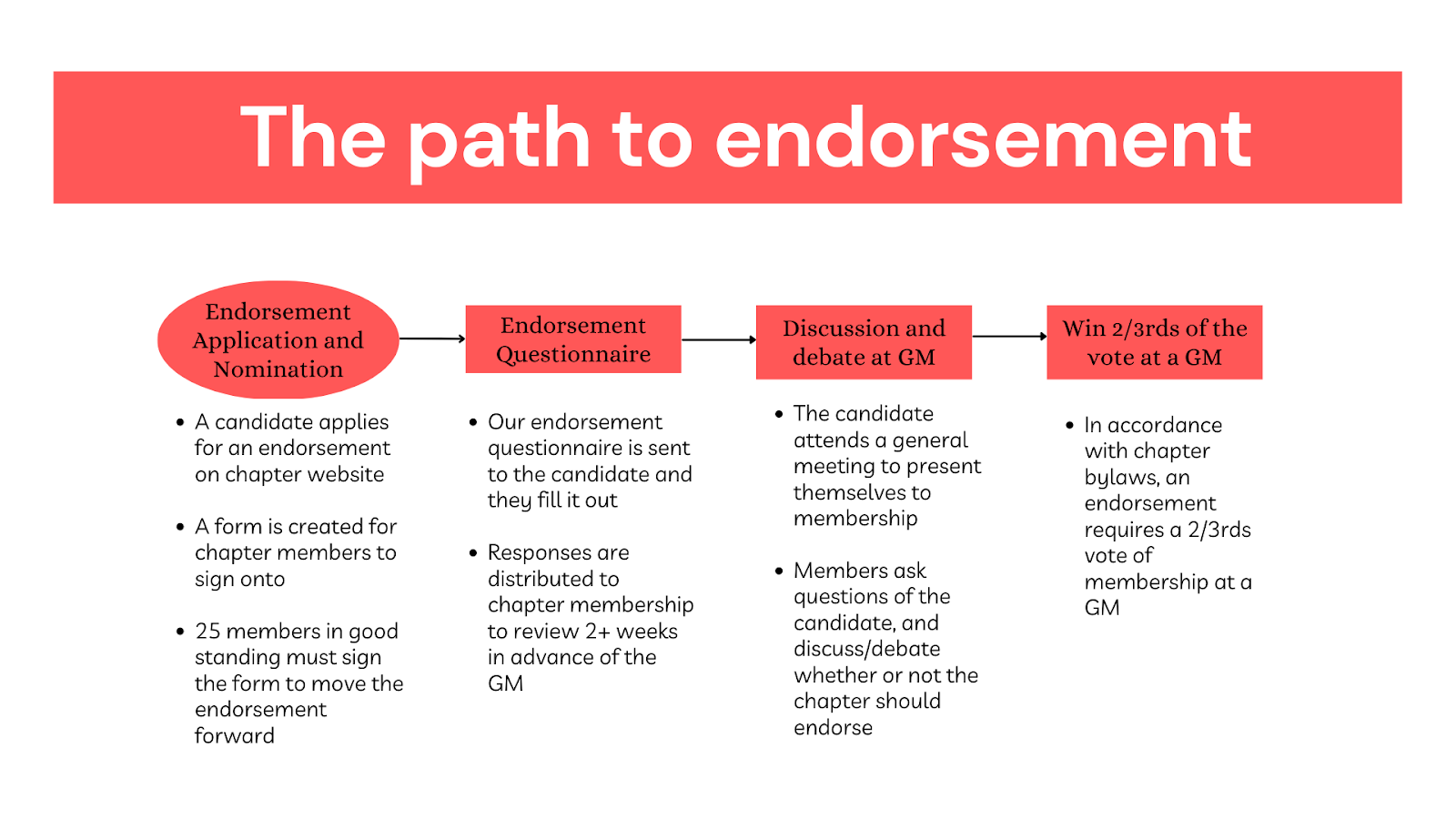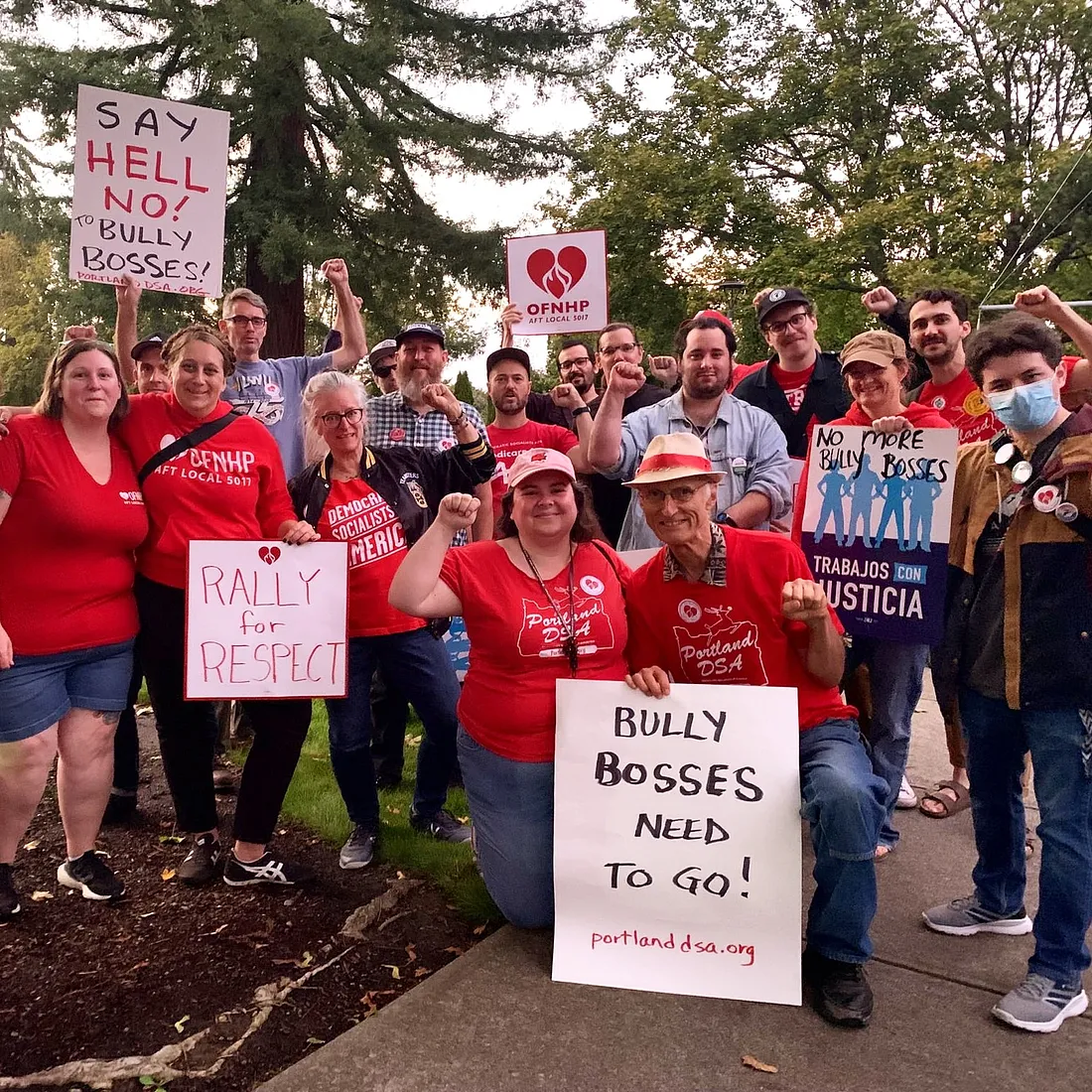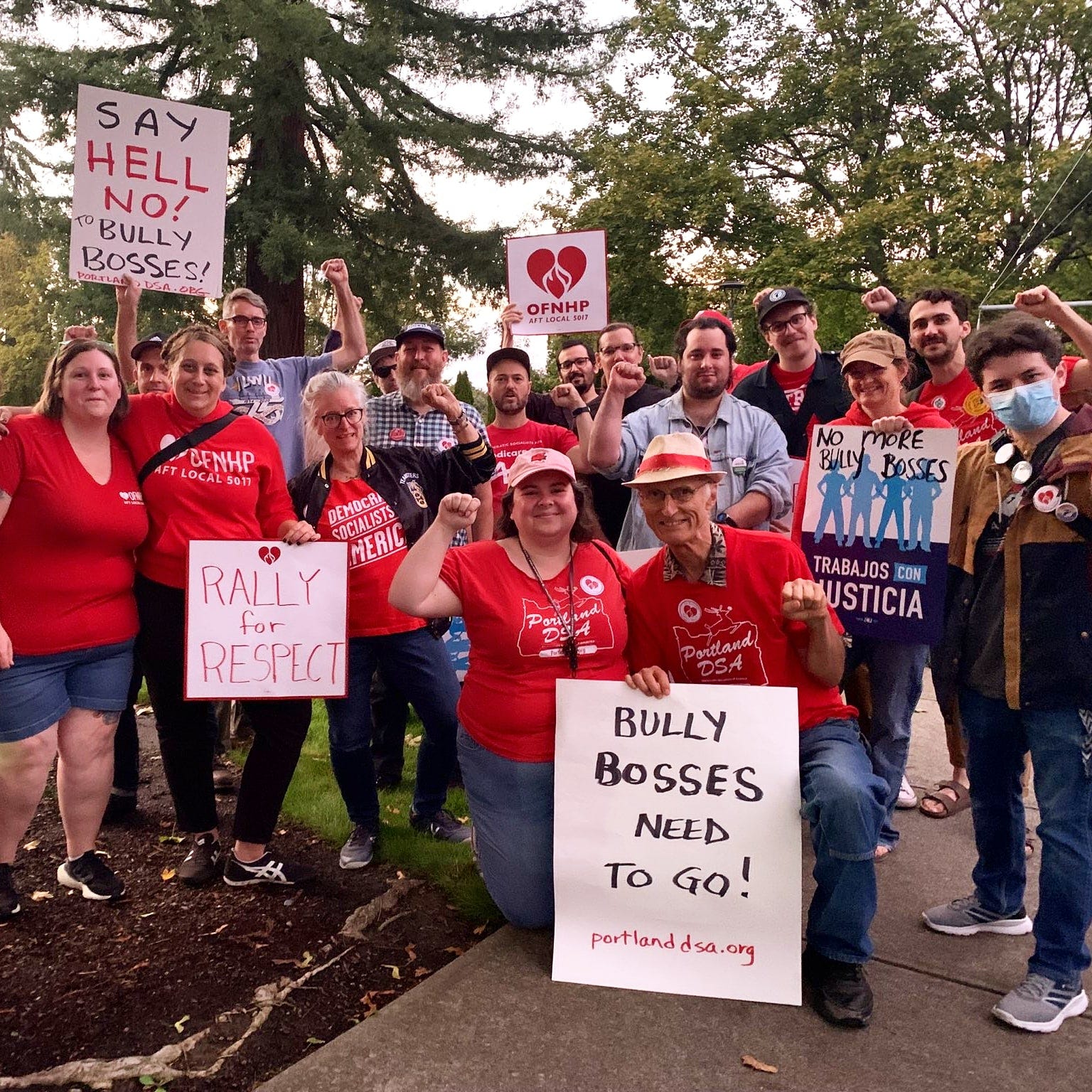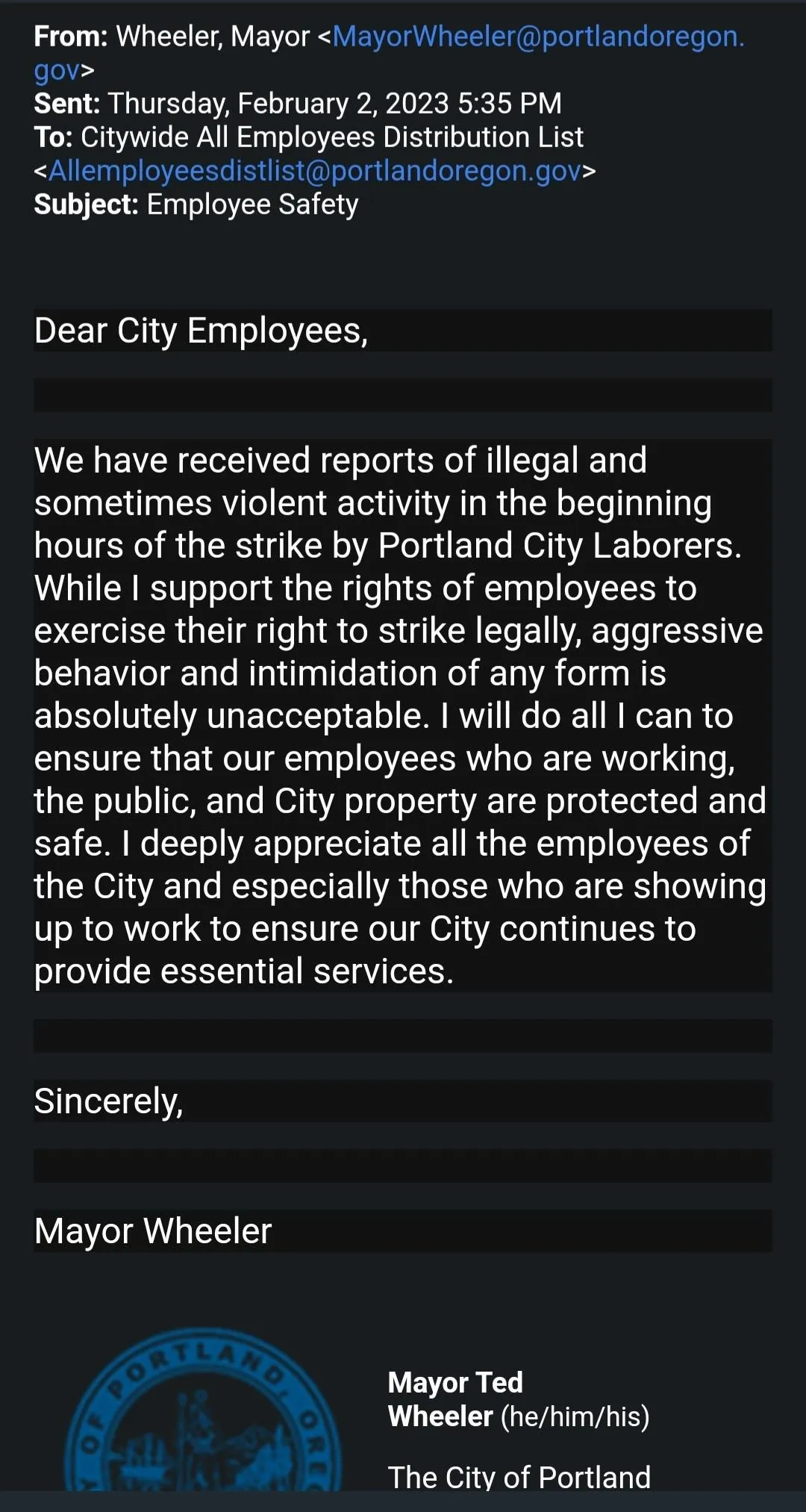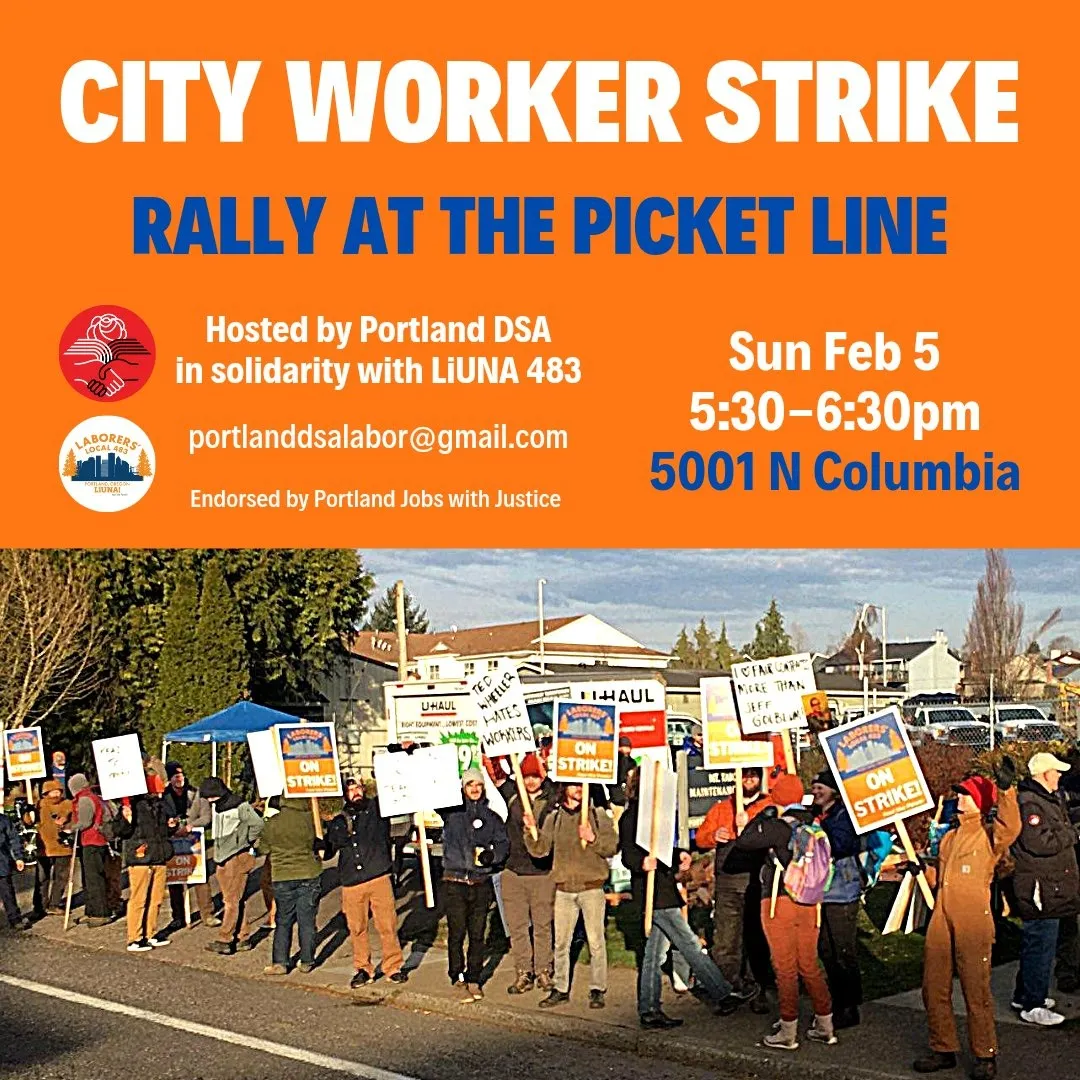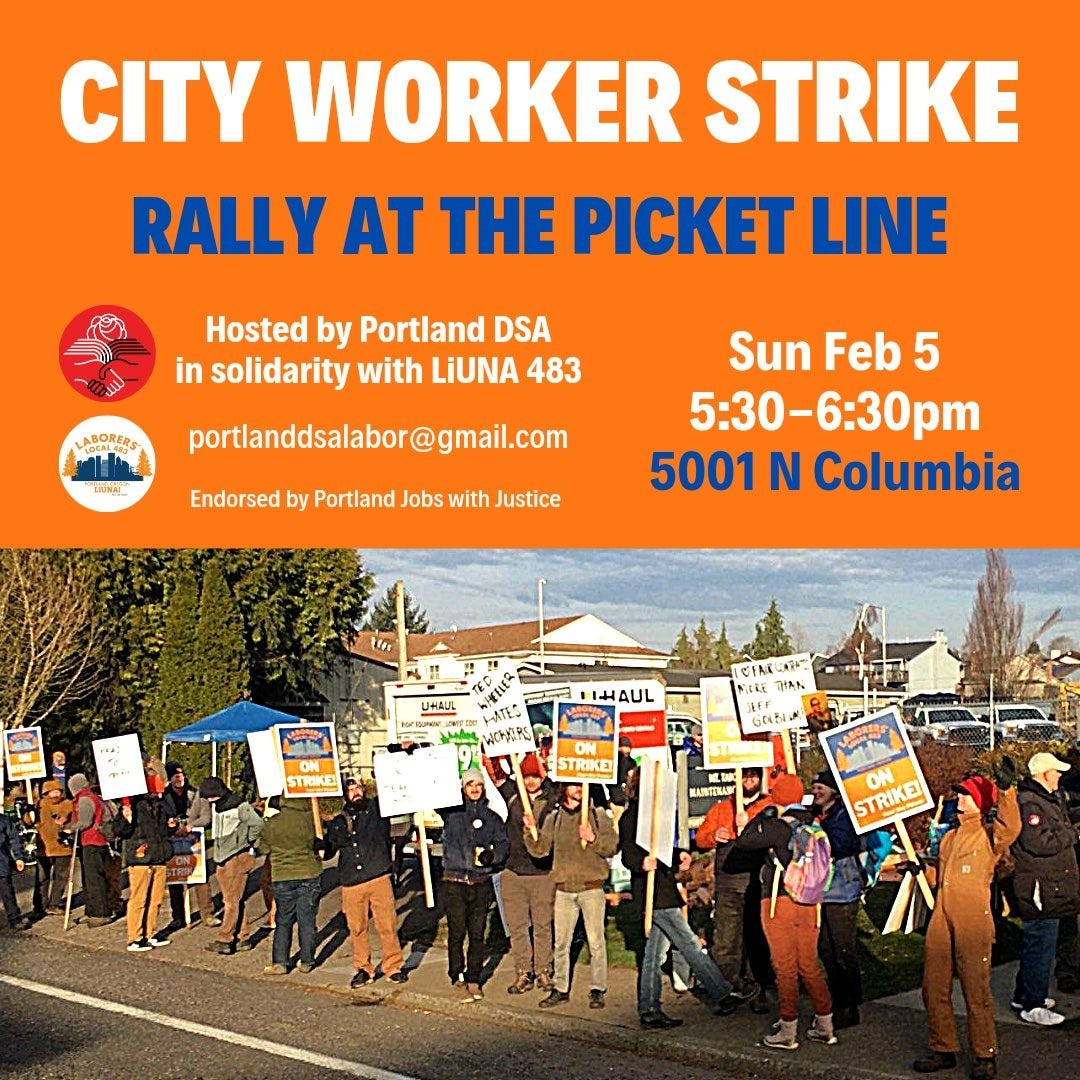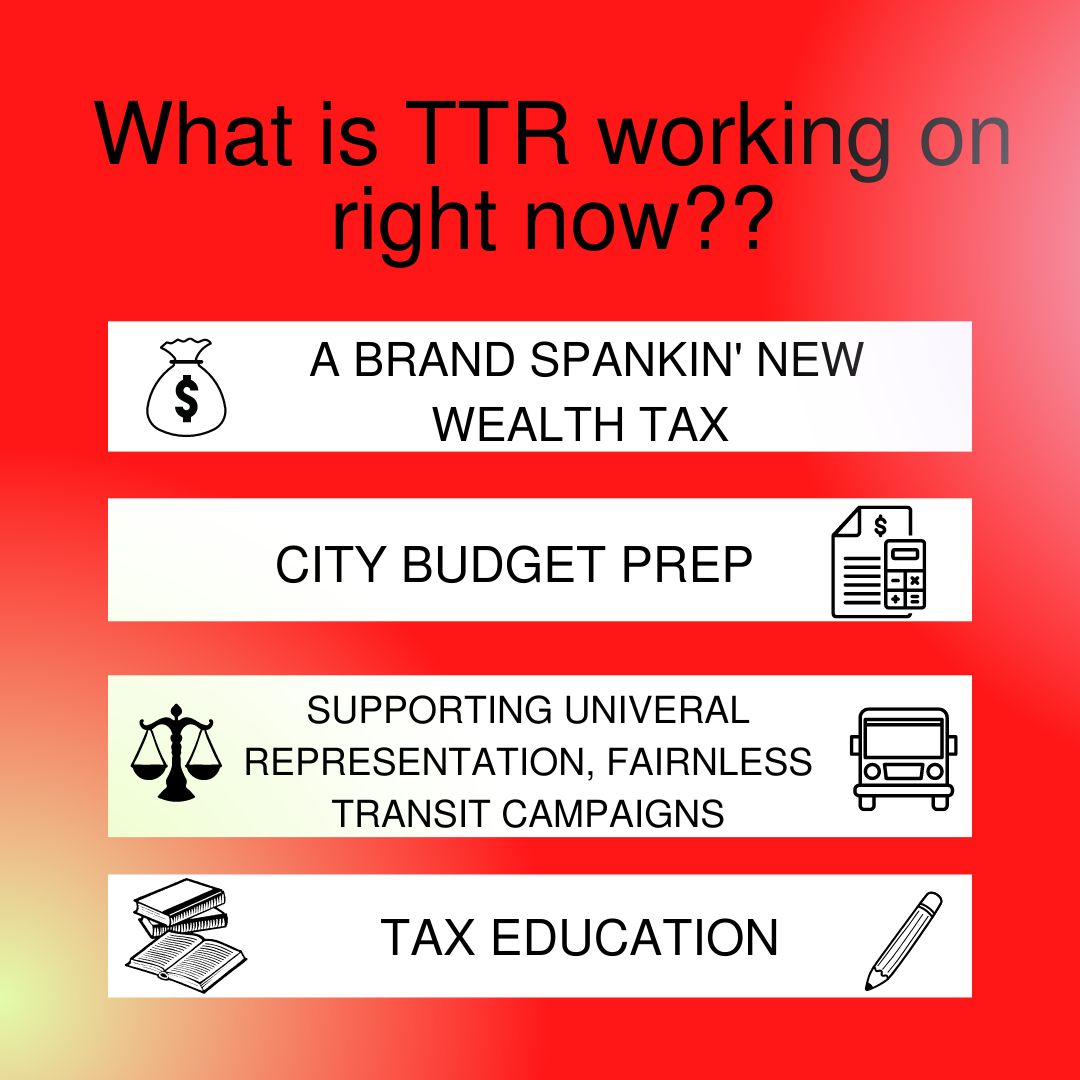In the months since October 7th many labor unions have struggled with how to speak out in solidarity with Palestinians, in the face of backlash from workplace management, within their rank and file, and from external critics. The pressure to stay silent is great and the consequences have included losing jobs, funding, and entire careers.
In a June 17th email to supporters, a day after being endorsed by the Portland Association of Teachers (PAT), Jesse Cornett, City Council candidate in District 3, accused PAT of “hate speech” for using the phrase “from the river to the sea” at an event. PAT was already facing heavy backlash against a posted (and now-removed) curriculum on Palestine, which was the focus of numerous local news articles in the Oregonian, Willamette Week, and others. We strongly disagree with Candidate Cornett’s political position, and stand with Palestinians and PAT.
In the context used by the Portland Association of Teachers, and hundreds, maybe thousands, of other organizations and events, the phrase “from the river to the sea” has been used as a call for Palestinian self-determination and an end to decades of occupation and injustice. This phrase long precedes the events of the past eight months. Attempts to claim that the phrase is evidence of bigoted beliefs are either misinformed or made in bad faith. Not only does Cornett’s attack smear generations of Palestinians struggling under occupation, it erases the nearly 40,000 Palestinians killed in Israel’s assault on Gaza. His reference to the right-wing-led censure of Rashida Tlaib, the only Palestinian American member of Congress, as justification for his position is deeply cynical and offensive.
Portland DSA stands with the Portland Association of Teachers’ right to free speech and vehemently oppose any person or organization which tries to repress their speech, especially on this urgent issue of the genocide in Gaza. We will not ignore calls from our Jewish comrades in Jewish Voices for Peace, who have eloquently laid out their positions in this letter of support for PAT. We encourage you to read the entire letter and share it with others, especially those who may not be aware of the Jewish movement for peace. Portland DSA ultimately decided that since we are a multi-ethnic and secular/multi-faith organization that it would not be appropriate to undersign the JVP statement, which included phrasing such as, “As Jews, we believe that everyone has a right to be safe. And here we ask Jewish students and parents to make a distinction between feeling unsafe and feeling uncomfortable.”
Portland DSA supports educators in asserting their political/moral obligation to contradict the one-sided, pro-Israeli perspective shared by the US government, mainstream media and news outlets, and a vast number of US institutions with financial ties resting on the success of Israel’s genocidal mission.
While the US spends billions of dollars on aid and weapons for Israel (over $12b this year alone) our public school students, parents and teachers are told that funding is not available for supplies, facilities, or fair wages. A major function of suppressing speech around Palestine is to obscure this contradiction and to distract us from the real reason that we can’t have appropriate funding for education: the greed of the capitalist class.
Those of us in the labor movement entered this fight not just to improve our working conditions, and the conditions of the people we serve, but to exercise our collective power over our work and what we make. The recent successes of organizing in the tech industry have resulted in remarkable successes with highly motivated yet un-unionized workers at Intel. Organizing alongside workers with our BDS and labor working groups, DSA played a crucial role in supporting those workers to pressure Intel to call off construction plans for a manufacturing plant in Israel. The labor movement does have the power to impact the events in Gaza, in spite of what capitalist education bureaucrats would like you to believe. Those of us on the left must make our positions public, to share in the work of solidarity and embolden others to do so in the process. It is our responsibility as socialists to stand firmly with teachers and support their right to teach and contextualize the historical and present conflict over land in Palestine through school curriculum, in whatever ways their members collectively deem appropriate.
We unequivocally support PAT in their internal process of developing their classroom materials and trust their experience and expertise as educators as they work to support and nurture students of all backgrounds in their classrooms, without the hostile scrutiny of the press, or politicians hoping to elevate their profile.
Politicians without clear platforms or policy ideas will do their best to create a “controversy” to generate press coverage, demonstrating a lack of political principles. These actions should indicate clearly to us how the candidate would behave once in office, and how they would, or would not, represent the people of Portland.
https://www.newsweek.com/full-list-reporters-fired-pro-palestinian-remarks-1837834
